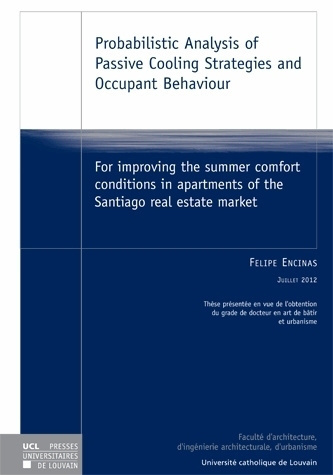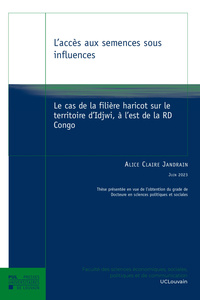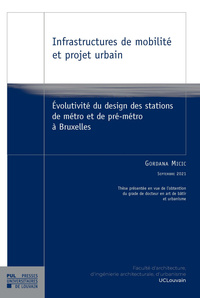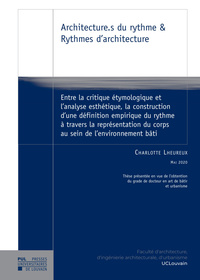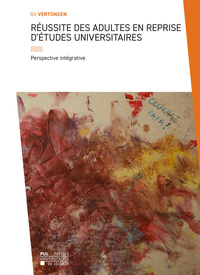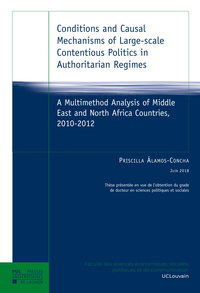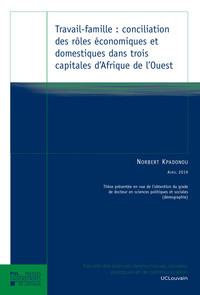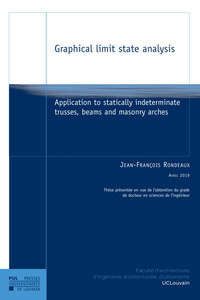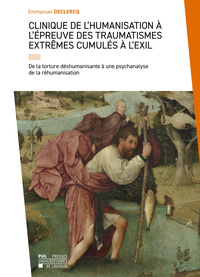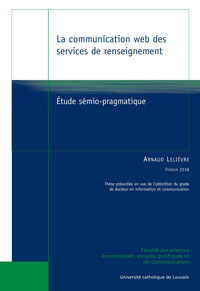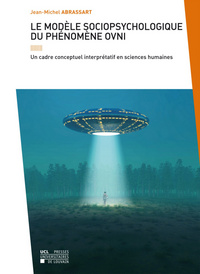Nous utilisons des cookies pour améliorer votre expérience. Pour nous conformer à la nouvelle directive sur la vie privée, nous devons demander votre consentement à l’utilisation de ces cookies. En savoir plus.
Probabilistic Analysis of Passive Cooling Strategies and Occupant Behaviour
Pu Louvain - EAN : 9782875580771
Édition papier
EAN : 9782875580771
Paru le : 15 juil. 2012
34,00 €
32,23 €
Disponible
Pour connaître votre prix et commander, identifiez-vous
Notre engagement qualité
-
 Livraison gratuite
Livraison gratuite
en France sans minimum
de commande -
 Manquants maintenus
Manquants maintenus
en commande
automatiquement -
 Un interlocuteur
Un interlocuteur
unique pour toutes
vos commandes -
 Toutes les licences
Toutes les licences
numériques du marché
au tarif éditeur -
 Assistance téléphonique
Assistance téléphonique
personalisée sur le
numérique -
 Service client
Service client
Du Lundi au vendredi
de 9h à 18h
- EAN13 : 9782875580771
- Collection : THESES DE LA FA
- Editeur : Pu Louvain
- Date Parution : 15 juil. 2012
- Disponibilite : Disponible
- Barème de remise : NS
- Nombre de pages : 350
- Format : H:160 mm L:240 mm E:19 mm
- Poids : 558gr
- Interdit de retour : Retour interdit
- Résumé : Overheating appears as a recurrent problem in apartments of the real estate market of Santiago, since their architectural design frequently does not incorporate passive cooling techniques and some occupants may not be completely aware of their impact on the thermal comfort. This situation is encouraged by a Thermal Regulation that allows extensive single glazing surfaces and that does not propose any criteria for limiting the risk of overheating during summer. To deal with this entire scenario, we proposed the application of passive cooling strategies with the aim of obtaining adequate conditions of summer comfort and avoiding the use of air conditioning in apartments of the real estate market of Santiago. This thesis establishes the definition of apartment typologies through a multidimensional approach, a sensitivity analysis with the aim of assessing the possibilities to reduce the risk of overheating and two questionnaire surveys related to occupant behaviour and to the interest and willingness to purchase solar protection devices. The results obtained suggest that the best performance in terms of summer comfort can be obtained from the combination of diverse variables that would be significant in respect to the reduction of the risk of overheating. In this sense, the presence of solar protection devices and night ventilation constitute very significant input parameters, especially with respect to living rooms and bedrooms, respectively. Finally, the approach proposed for this thesis not only allows introducing improvements in terms of summer thermal conditions, but also suggests the integration of a series of attributes, such as the incorporation of solar protection devices as part of the architectural design, with the aim of being developed at the level of their value chain.

